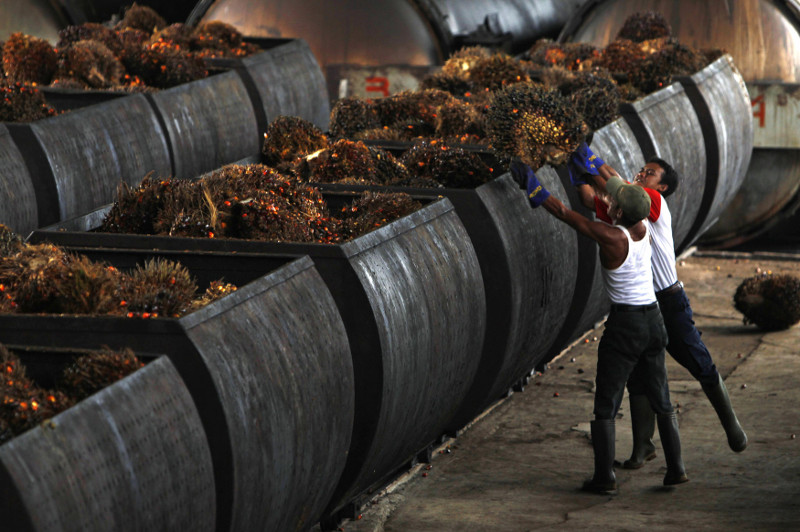KUALA LUMPUR, July 1 — The Ministry of Plantation Industries and Commodities (MPIC) through the Malaysian Palm Oil Board (MPOB) will focus on research in the field of mechanisation and automation such as the development of plantation machinery, especially for oil palm harvesting.
Its Minister Datuk Dr Mohd Khairuddin Aman Razali said the use of machinery technology was a strategy towards reducing the high dependence on foreign labour in oil palm plantations.
“The problem of manpower shortage is estimated to bring a loss of about RM10 billion a year due to ripe palm fruits that are not harvested,” he said at the launch of the MPOB Virtual Transfer of Technology Seminar and Exhibition (TOT 2021) held today.
Mohd Khairuddin said with the use of plantation machinery, it could increase labour productivity and farm operation efficiency.
Clearly, the widespread use of mechanisation in the plantation sector will also encourage the involvement of youths to pursue careers in the oil palm industry which is associated with a less attractive work environment than other sectors.
MPOB director-general Dr Ahmad Parveez Ghulam Kadir said according to data reported to MPOB, it was estimated that Malaysia had 352,000 foreign workers in the oil palm industry.
“The number is actually insufficient, as according to the report, we received almost 50,000 more foreign workers who are needed to carry out plantation work.
“So we should have about 400,000 foreign workers in the country’s oil palm industry. This is a record until the end of 2020,” he said.
Commenting on the cost incurred to employ foreign labour, Ahmad Parveez admitted that it involves a relatively high cost where on average each foreign worker is paid RM3,000 per month.
He said that with the technology that facilitates the work of oil palm plantations, dependence on foreign labour can be reduced and local workers will be more interested to enter the oil palm industry.
Meanwhile, MPOB has launched four new technologies including oil palm disease control technology, production of oil palm biomass products for oil palm mill effluent treatment and farm machinery for the transport of fresh fruit bunches.
For oil palm disease control technology, MPOB has introduced technology using endophytic bacteria as an effective biological control agent to control stem root rot disease (BSR) caused by Ganoderma fungus and technology to control upper stem root rot disease (USR) in palm trees with early symptom detection using a systemic poison, hexaconazole.
In the context of manufacturing innovation, MPOB develops innovations for palm oil mill effluent (POME) treatment through systems and methods combining biological treatments involving aeration and physical chemical adsorption with activated charcoal treatment.
At the same event, MPOB also launched three products from a commercialisation collaboration with local companies, namely the commercialisation of Ganoderma disease control technology, palm-based plasticiser for use in the industrial sector and an electric-powered palm fruit cutting tool known as Cantas Elektro.
Ahmad Parveez said apart from introducing new technologies, TOT 2021 also provides opportunities for industry players and entrepreneurs including small and medium industries to commercialise MPOB’s research results which would contribute to the development of the country’s oil palm industry.
“The commercialisation of MPOB technology provides business opportunities in a win-win situation between technology providers and industry players as well as entrepreneurs involved in production and services.
“Apart from the commercialisation of technology, MPOB also assists in intellectual property management, provides expertise through consulting services and laboratory facilities and pilot plants for testing and production of competitive products,” he said. — Bernama






















